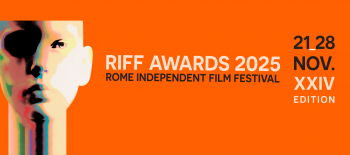23.09.20 – 12.00 – KSAP – Wawelska, 56 Warsaw
The balance of the costs and benefits of European integration for the world after the pandemic
The negotiations between European politicians in 2020 have been the liveliest since the times of the EU summit in Nice almost 20 years ago. After the lockdown, they had to decide on a rescue package for Europe, as well as on the budget for the next seven years.
The COVID-19 pandemic highlighted the differences in states’ interests. Although they managed to reach an agreement and avoid an economic collapse, they were close to a situation without an agreement, in which the crisis would continue, with no decision on remedial measures.
The European economy may be at risk of (or already experiencing) secular stagnation, a period of low growth, and other threats that states cannot cope with on their own are looming on the horizon.
At these times in history, when it is difficult to make clear plans for the future, it is worth reaching back into the past. Towards what, specifically? To the balance of the benefits, but also the costs, of European integration – to what it has led us to, and to the migration that took place in Europe, financial transfers that were not necessarily beneficial for all parties, and redistribution. Only after evaluating all these phenomena, processes and reactions can we say what kind of EU we want in the years ahead.
Today, it is already certain that historians will draw a line under what happened before the pandemic, saying that COVID-19 led to the start of a new era. We sum up the old one, which is gone forever, and examine the lessons it offers for the future.
Professor Bronisław Geremek Lectures
The series of Professor Bronisław Geremek Lectures began in 2010 on the initiative of the Polish and Dutch foreign ministers as a tribute to the political and academic activity of Professor Bronisław Geremek and his involvement in the relations between Poland and the Netherlands in the context of the European integration process.
The Lecture is held annually, alternately in Poland and the Netherlands, and covers broadly understood European topics. The speakers are eminent representatives of the world of politics, diplomacy, media, academia and science. This year, on its 10th edition, the Professor Bronisław Geremek Lecture is dedicated to the economic dimension of the European integration.
Lech Kaczyński National School of Public Administration (KSAP)
KSAP, which was established soon after the May 1990 initiation of transformation of the political system by the government of Tadeusz Mazowiecki, has played an important role in the reforms of public administration, and in building an independent and professional civil service in the democratic Poland. It was the first establishment of its kind in any of the former Communist bloc countries.
In the changing reality of the last 25 years, KSAP has been unwavering and painstaking in discharging its statutory obligation to train competent and politically neutral personnel for public administration. The National School of Public Administration strives to meet the challenges faced by the Polish administration, addressing its needs, and developing close cooperation with various institutions and organizations operating domestically and abroad.
The School reports to the Prime Minister of the day, acting pursuant to the Act on the National School of Public Administration of 14 June 1991.
Konrad Szymański
in November 2019 was appointed as Minister – a member of the Council of Ministers and in March 2020 as Minister for European Affairs.
In November 2015 he was appointed to the posts of Secretary of State for European Affairs in the MFA and Prime Minister’s Plenipotentiary for European Council meetings.
In 2004-2014, Konrad Szymański was a member of the European Parliament from the Law and Justice Party (PiS), where he dealt with Eastern affairs, the EU’s relations with the Eastern Partnership countries and the EU’s energy security. In 2013 and 2014, Polityka and Rzeczpospolita respectively voted him one of the best Polish members of the European Parliament.
In 1997-1998 he worked for the Chancellery of the Sejm (lower chamber of the Polish Parliament); in 1999-2000 he advised Deputy Speaker of the Sejm and was a member of the political cabinet of Minister Kazimierz Marcinkiewicz (the chief of Prime Minister Jerzy Buzek’s political cabinet).
In 1995 he graduated from the Faculty of Law of the Adam Mickiewicz University in Poznan.
Wojciech Federczyk
Appointed to the post of Director of Poland’s National School of Public Administration by the Prime Minister Beata Szydło on October 8th 2016.
Doctor of Legal Sciences (Jurisprudence) of many years’ academic and public-service experience, in managerial posts in both Polish civil service (at the Ministry of Internal Affairs and Administration) and local government (the Warsaw City Office); as well as in the position of expert (at the Constitutional Tribunal and bodies of the central administration). A Member of the ”Warsaw Administration Axiology Seminar”, Dr Federczyk has interests centred around public administration science, as well as methods of achieving amicable dispute resolution through the involvement of administration.
Anita van den Ende
serves as the Director General for European Cooperation at the Ministry of Foreign Affairs since October 2019. Before this appointment, she was Deputy Treasurer General and Director for Financial Markets at the Ministry of Finance. She previously held the position of Deputy Director General for the Environment & International Affairs and Director of Climate, Air & Noise at the Ministry of Infrastructure and Water Management. Minister van den Ende attended the University of Leiden, where she earned a master’s degree in both law and economics.
Piotr Arak
Director of the Polish Economic Institute. since September 2018. A social and economic analyst. He previously worked at Deloitte, Polityka Insight think-tank, the United Nations Development Programme, the Ministry of Administration and Digitisation, and the Chancellery of the Prime Minister. He graduated in social policy from the University of Warsaw, followed by further studies on using statistical methods in business and an MBA at the Warsaw School of Economics and Université du Québec à Montréal. He is writing a PhD on public policy at the University of Warsaw. He has written numerous studies on digitisation, the economics of health and economic policy.
Agata Kołodziej
Head of the communications team since May 2020. Previously an economic journalist with more than ten years of professional experience, associated with ‘Gazeta Giełdy Parkiet’, TVP, Onet, ‘Rzeczpospolita’ and money.pl. She has also worked with ‘Gazeta Wyborcza’, ‘Dziennik Gazeta Prawna’ and the Spider’s Web website. She graduated in Journalism and Social Communication from the Jagiellonian University and took a post-graduate course in the Financial System and Monetary Policy at the Institute of Economics of the Polish Academy of Sciences.
PROGRAM:
12:00 Welcome speeches
- Wojciech Federczyk Director of Lech Kaczyński National School of Public Administration
- Konrad Szymański Minister for European Affairs of the Republic of Poland
- Anita van den EndeDirector General for European Cooperation of the Ministry of Foreign Affairs of the Kingdom of the Netherlands
12:15 Lecture „The balance of the costs and benefits of the European integration for the world after the pandemic”
- Piotr Arak Director of the Polish Economic Institute
12:45 Debate and Q&A session
- Konrad Szymański Minister for European Affairs of the Republic of Poland
- Anita van den Ende Director General for European Cooperation of the Ministry of Foreign Affairs of the Kingdom of the Netherlands
- Piotr Arak Director of the Polish Economic Institute
Moderator: Agata Kołodziej Head of the communications team of the Polish Economic Institute
13:30 End of the meeting



